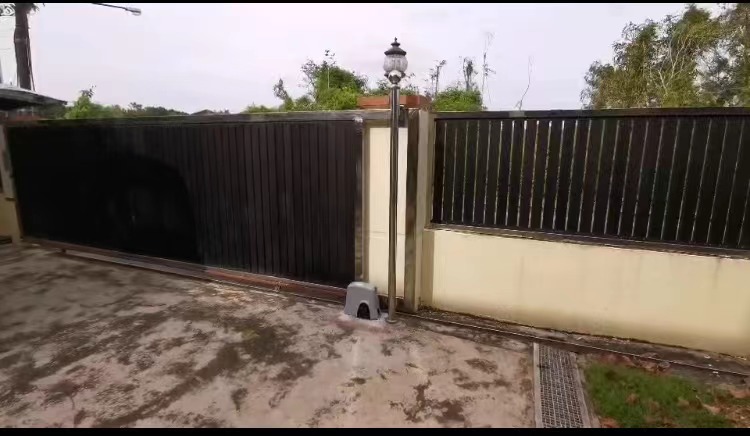How secure is a remote control gate opener system?
With the advent of technology, remote control gate opener systems have become increasingly popular among homeowners and businesses alike. These systems offer convenience, ease of access, and enhanced security. However, as with any technology, concerns about security arise. In this article, we will explore the security measures of remote control gate opener systems and evaluate their effectiveness in protecting your property.

Encryption and Authentication
One of the fundamental security features of a remote control gate opener system is encryption and authentication. Most modern gate opener systems utilize encryption protocols such as rolling codes or fixed codes. Rolling codes generate a new code each time the remote is used, preventing unauthorized individuals from intercepting and reusing the code. Fixed codes, on the other hand, use a single code that remains constant.
In addition to encryption, authentication mechanisms ensure that only authorized remotes can operate the gate opener. This is typically achieved through unique identifiers or access codes that are programmed into the system during the installation process. It's crucial to use strong, complex codes and regularly update them to maintain a high level of security.
Frequency Hopping Spread Spectrum (FHSS)
Many remote control gate opener systems employ Frequency Hopping Spread Spectrum (FHSS) technology. FHSS works by rapidly switching frequencies during communication between the remote and the gate opener. This technique makes it difficult for unauthorized individuals to intercept and decipher the transmitted signals, thereby increasing the overall security of the system.
Physical Security Measures
While the focus of this article is on the digital security of remote control gate opener systems, it's essential not to overlook the physical security measures associated with these systems. For example, the control unit of the gate opener should be placed in a secure location, such as a locked control box, to prevent tampering or unauthorized access.
Similarly, the remote controls themselves should be safeguarded to prevent loss or theft. It is recommended to keep them in a secure location, such as inside the house or within a keychain pouch. Additionally, it is prudent to avoid leaving the remote control in an unattended vehicle where it may be visible and attract potential burglars.
Potential Vulnerabilities
While remote control gate opener systems offer robust security features, there are potential vulnerabilities that users should be aware of. One such vulnerability is the interception of the radio frequency signals used by the system. Sophisticated attackers with specialized equipment and knowledge could attempt to intercept and decode the signals to gain unauthorized access. However, the likelihood of this happening in practice is relatively low, given the level of encryption and frequency hopping employed in modern systems.
Another vulnerability lies in the event of a lost or stolen remote control. If a remote control falls into the wrong hands, an unauthorized person may gain access to the gate opener system. To mitigate this risk, it is important to promptly report lost or stolen remotes to the system administrator or service provider, who can then remove the compromised remote from the system and reprogram a new one.
Conclusion
Remote control gate opener systems provide a convenient and secure way to access your property. By utilizing encryption, authentication mechanisms, frequency hopping, and physical security measures, these systems significantly reduce the risk of unauthorized entry. While there are potential vulnerabilities, the overall security level of modern gate opener systems is robust. To maintain the highest level of security, it is important to follow best practices such as using strong access codes, promptly reporting lost or stolen remotes, and implementing physical security measures. With these precautions in place, remote control gate opener systems offer a reliable and secure solution for controlling access to your property.





